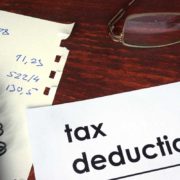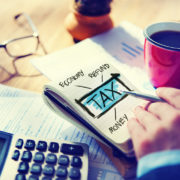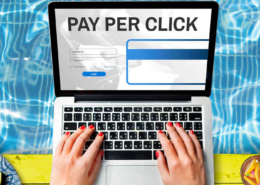You have money on your mind. How to take care of your Airbnb taxes like a pro
Paying taxes are one of those enviable things that you just have to do. Sure, they’re a little frustrating, but the alternatives- jail or huge fines- are much worse. Here at Hosty, we may think outside the box when we’re developing solutions to make managing multiple Airbnb accounts easier, but we’re on the straight and narrow when it comes to taxes. And truthfully, you should be too. If you’re making income from your Airbnb management practices, you should be reporting it and paying taxes on it.
Taxes can be tricky, and the more you know, the more the write-offs can benefit you, so doing your homework is necessary. Thankfully, this post is a great place to start. Keep reading for some information on how to report your Airbnb income.
*IMPORTANT NOTE: we aren’t lawyers or accountants or tax specialists, and we’re not giving you legal or tax guidance. We’re simply passing along a few Airbnb tax reporting tips that we picked up along the way.
Airbnb tax advice
Know about the 14-day rule: There is a rule that if you rent out your property (on Airbnb or any other rental site) for no more than 14 days a year and stay there for at least 14 days yourself, you don’t have to pay taxes on the revenue that you make. This rule also applies to renting out rooms in your home. Depending on your time commitment, your finances, and your lifestyle, keeping your rentals under 14 days may be a good idea. If you feel that you want to rent your property more, that’s when you’ll have to begin keeping track of you Airbnb taxes and fees.
Maintain records
To keep the government happy, you need to document all of your business revenues and expenses throughout the year. You do this by keeping either physical or electronic copies of all of the receipts and invoices that you receive. This is a little tedious but getting into the habit of filing receipts as you receive them makes it simple enough. If you don’t keep proper documentation, you don’t have proof of income or expenses. This becomes a problem if you get audited, or your accountant has a specific question.
Don’t want to keep track of everything by yourself? Use small business finance tracking software like Quickbooks to help you keep track of your deductions and pay your quarterly taxes on time. Small business packages are easy to use. They keep you organized, and will automatically calculate deductions, so you know that you’re always managing your finances properly.
Know what you can and can’t deduct
Deductions are business expenses that you can subtract from the money you earned from your business, thus reducing your tax burden. It’s a good way of oweing less each year, especially as Airbnb taxes can get costly. Basically, if you purchased something that was used for your Airbnb (a can of paint, a new kitchen table, or a fancy new smart lock you can write off the cost of it. You also have the potential to write off the cost of a home office and travel expenses for when you travel to and from your properties.
Don’t forget! You can also write off listing fees and service fees, too.
Learn about occupancy taxes: Some cities or municipalities charge occupancy taxes for short term rentals. It varies depending on where you live, so it’s best to call your city and find out. Again, this is one of those times that doing your homework is worth the effort. It has the potential to save you tons of time, money, and the hassle of back taxes and fines later on.
Ready to turn your hobby into the next big thing? Get the tools to run your business right with Hosty, the professional Airbnb property management software that helps you succeed.
Pro tip: Now that you know how to tackle your taxes, it’s time to think about getting some Airbnb insurance for your properties. Learn more!
We hope that this information makes it possible to be prepared to tackle your Airbnb taxes when the time comes. Do you have any other Airbnb tax advice? Let us know in the comments.


















